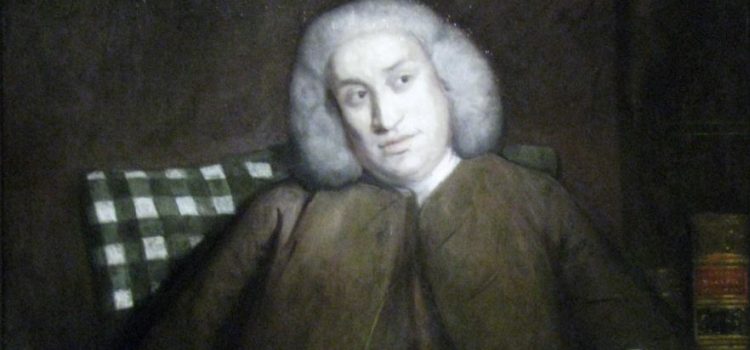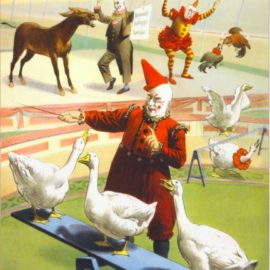

This article is an excerpt from the Shortform book guide to "The Road to Character" by David Brooks. Shortform has the world's best summaries and analyses of books you should be reading.
Like this article? Sign up for a free trial here .
Who was Samuel Johnson? What contribution did he make to the English language?
Samuel Johnson is best known for his creation of the first important dictionary of the English language. His life was full of sickness, rejection, and depression, but Johnson overcame his struggles by recognizing and accepting his flaws and pushing forward despite them.
Keep reading to learn about the life of Samuel Jonson.
Who Was Samuel Johnson?
The brilliant writer and critic Samuel Johnson, who made major contributions to English literature in the 18th century as a poet, playwright, essayist, moralist, literary critic, biographer, and editor, demonstrated the importance of:
- Resilience: Protracted periods of struggle help to build our character. Inner turmoil builds our character.
- Self-examination and self-critique: Don’t think you’re fine the way you are. Take a good hard look at yourself to see where you can improve.
- Self-improvement: Humans can’t achieve perfection, but there is beauty in trying.
Johnson’s Character Development
The life of Samuel Johnson started in the town of Lichfield, England in 1709. He was disadvantaged from the start. Not only was Johnson’s family poor, but the young boy suffered from a range of physical and psychological maladies. Nonetheless, Johnson’s remarkable intellect was apparent at a young age. He studied languages, literature, and theology at Oxford University, but he did not have the funds to be able to complete his degree. After leaving Oxford, he fell into a four-year-long depression and his physical health worsened.
Johnson struggled with his chronic poor health, but he tried not to slip into self-indulgence. He hated the idea of coddling himself because he was ill. In Johnson’s brand of Christianity, God was more demanding than forgiving. Johnson’s God had high expectations. Concerned about being judged inadequate by both his peers and God, Johnson forced himself to work hard at self-improvement. One of his biggest concerns was that he was lazy. His diary entries are filled with self-criticism and vows to work harder and organize his time better.
He pulled himself out of despair by subscribing to self-exploration and moral inquiry, believing that most problems are moral problems. He came to realize that he would never be able to conquer his multitude of flaws, but that he could learn to manage them better. He believed there was grace in moral combat—a constant striving to be a better human being. As he made peace with his own failings, he also learned to take a sympathetic view of others’ failings. Seeing sorrow everywhere in the world, he preached charity and mercy.
Eventually, despite his odd demeanor and unwieldy manners, Johnson became a highly respected writer and pundit at the center of London’s social life. Many of Johnson’s works are still taught in college English classes today, but his most famous contribution was his creation of the first important dictionary of the English language. When the first edition was published in 1755, it was considered a masterpiece of literary achievement. He was granted a royal pension and honorary degrees from Dublin’s Trinity College and Oxford University, which afforded him the title “Dr. Johnson.”
Much of what we know about Johnson today is from his biographer, James Boswell, who wrote an intimate account of a cultural icon that is still considered one of the greatest English-language biographies.
Johnson’s Struggles
Samuel Johnson had a multitude of physical and psychological ailments starting from the very beginning of his life. He contracted smallpox, was deaf in his left ear, had eyesight problems, and suffered from depression. His childhood was made worse by his parents, who suffered from financial problems and often fought bitterly. The boy was often left to fend for himself.
Johnson’s twenties weren’t much better. After his short stint at Oxford, he suffered a massive emotional collapse. In the midst of it, he developed what we would now call Tourette syndrome—involuntary tics, gesticulations, and oral outbursts. His poor health and unreliable mental state made it hard for Johnson to find work. His psychological issues elevated from general melancholy to insomnia and drug and alcohol addiction. His body also declined from obesity, heart failure, gout, and stroke.
By any measure, Johnson was an odd, awkward person—he was an enormous, slovenly man, with a face scarred by smallpox. His convulsive tremors and outbursts frightened people. But at 26, Johnson had the good fortune to meet a wealthy widow, whom he soon fell in love with and married.
He started a boarding school with his wife’s money, but the school quickly went bankrupt. Soon thereafter, he moved to London in the hope of making a living as a writer, but to his despair, his wife refused to accompany him. Johnson sometimes walked the streets all night because he couldn’t afford even the cheapest lodging.
Although his physical ailments continued to plague him, he began to support himself by writing for London magazines and publishing houses. He gained notoriety for his sharp wit and extraordinary writing skill. Despite his odd demeanor, as soon as he began to speak, people listened. Johnson’s brilliant conversations—and his writings—mixed thoughtful insights with carefully crafted humor.
After many years of feeling like the odd man out, Johnson at last found his place, both professionally and personally. As he matured to the point that he could look unflinchingly at his own flaws, he also saw the flawed nature of the world around him, and he developed a sensitivity to the plight of others. He had spent so much of his life overcoming physical suffering and disfiguration that it gave him a huge capacity for empathy. In his social life and in his literary works, he equally embraced wealthy intellectuals and the impoverished masses—every single human was another worthy example of the complexity of humanity. Johnson even welcomed his critics—he thought it better to be criticized than overlooked.
In his later years, Johnson’s writing often focused on the theme of humans’ unending quest for goodness, and how that quest is always futile. But he never stopped believing there was glory to be found in the pursuit.
Lessons From Johnson’s Life
- Life is essentially a moral contest. Every struggle we face is a chance to improve our moral character.
- Physical maladies and emotional suffering can make us more virtuous and more compassionate toward others.
- Humans can’t achieve perfection, but the struggle for self-improvement is always worthwhile.

———End of Preview———
Like what you just read? Read the rest of the world's best book summary and analysis of David Brooks's "The Road to Character" at Shortform .
Here's what you'll find in our full The Road to Character summary :
- How the world has become "me-focused" rather than "we"
- An analysis of eight historical figures who selflessly contributed to the greater good
- A 15-point plan to help you live a more virtuous and happy life






